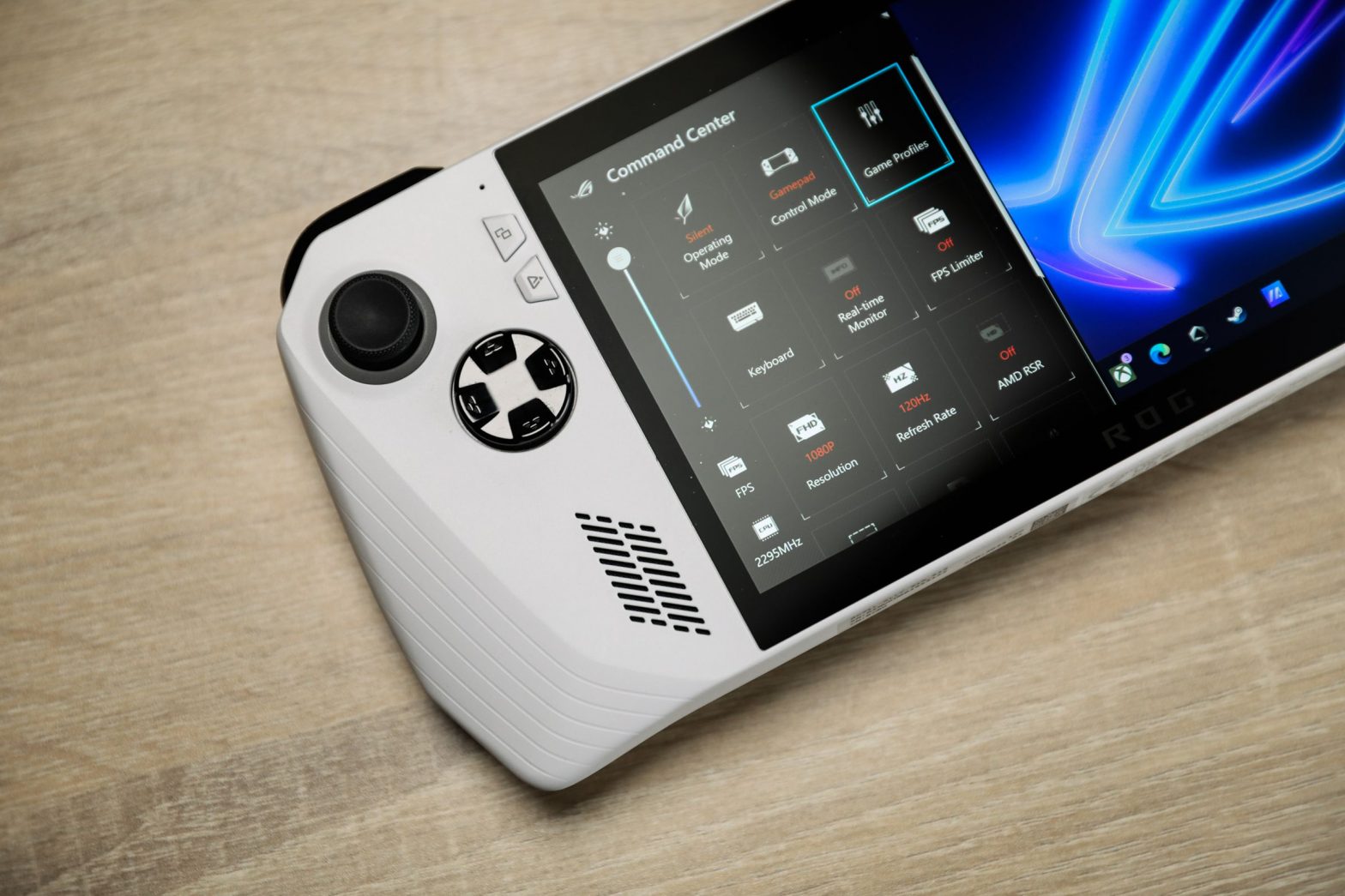/
If you’re seeing these issues, Asus wants to know.
Share this story
:format(webp)/cdn.vox-cdn.com/uploads/chorus_asset/file/24648973/asus_rog_ally_vjeran_pavic_the_verge_001.jpg)
On launch day, the Asus ROG Ally handheld gaming PC mysteriously had worse performance than it did in my original review, something several other reviewers confirmed.
Two weeks later, Asus is publicly saying 1) that’s not normal, 2) you shouldn’t see reduced performance anymore, and 3) if you do — or if your ROG Ally is having issues with SD cards — you should immediately reach out to Asus technical support.
“When fully updated, including with the latest BIOS 319 and the latest AMD graphics drivers 31.0.14058.4001 (downloadable in MyAsus), we are seeing performance on par with the launch BIOS version 317,” writes Asus ROG marketing manager Whitson Gordon, at the company’s official Discord.
(I’m including the full message at the bottom of this story for posterity and so you don’t have to click through.)
Please note that’s the same BIOS that Asus shipped at launch — the only thing that’s changed here is the AMD graphics driver, which got a hefty hotfix when I wasn’t looking:
:format(webp)/cdn.vox-cdn.com/uploads/chorus_asset/file/24761043/amd_hotfix.jpg)
If you want to test for yourself, Asus claims you should see somewhere around 39.95FPS in the Cyberpunk 2077 benchmark at 1080p, medium spec, with AMD’s FSR set to Auto, in Turbo mode, with the system unplugged. “If you repeat these benchmarks but get drastically different results with a fully up-to-date system, please reach out to customer support at Asus.com for help.”
I haven’t yet been able to re-run all my benchmarks again, but I’ll do that soon — I’m not certain that 39.95FPS in Cyberpunk at 1080p medium FSR brings us back to original performance levels, but perhaps! My bigger question: will the improved battery life that I saw alongside the performance dip go away, too?
So — what’s going on with SD card readers? Game journalist Jeff Gerstmann is among those having major issues with failing SD cards, which he and other affected users suspect has something to do with its placement right underneath the ROG Ally’s primary cooling fan and vent.
:format(webp)/cdn.vox-cdn.com/uploads/chorus_asset/file/24761093/rog_ally_fan_sd.jpg)
Asus isn’t publicly saying what it’s discovered there quite yet — but Whitson does say it will boost the ROG Ally’s fan speeds in the meanwhile “since good cooling alleviates the types of component stress that can sometimes cause issues.”
“In the meantime, you can create your own manual fan curve in Armoury Crate SE,” Whitson adds.
Valve had major issues with failing microSD cards on the Steam Deck, too, though those were eventually traced to SteamOS formatting them prematurely, not initially letting users software-eject them, and some SD cards that were too far past their prime. I personally lost two SD cards to the Steam Deck, as well as one aging NVMe external drive.
Here’s the full note from Asus:
Hello everyone, we have received the following updates from headquarters regarding the ROG Ally.
May vs. June Performance Gaps
We’ve heard your concerns regarding a performance drop in the first week after launch, and set out to test the theories surrounding this gap. When fully updated, including with the latest BIOS 319 and the latest AMD graphics drivers 31.0.14058.4001 (downloadable in MyASUS), we are seeing performance on par with the launch BIOS version 317. You can see our testing results below and validate them on your own system with the same games and settings. Cyberpunk 2077 Benchmark (1080p Medium, FSR Auto): Bios 317: 38.44 FPS Bios 319: 39.95 FPS If you repeat these benchmarks but get drastically different results with a fully up-to-date system, please reach out to customer support at asus.com for help. These results were obtained with the Ally in Turbo mode, unplugged, and with VRAM set to the default 4G. We will be adding more validated game testing to this list soon, so you have more examples to replicate on your own device.
Joystick Deadzones
In addition, we are still investigating reports about the joystick deadzones. There are multiple variables that contribute to the deadzone you experience, such as the game being played, the launcher and its controller layer, and of course Armoury Crate SE. Each of these factors can stack on top of each other — and since we know this is a big concern for many of you, we want to make sure we address it with the thoroughness it deserves. Stay tuned for more updates as we are still testing. (edited)
Issues with SD Card Readers
Finally, our team is still hard at work testing concerns around the microSD card reader. First things first: if your Ally’s microSD card reader is failing to read any microSD cards, or you believe there is a malfunction with the reader, please RMA your device by heading to https://www.asus.com/us/support/article/1135/ (US) or https://www.asus.com/support/Product/ContactUs/Services/questionform/?lang=en-gb (UK).
We take user reports very seriously, but we would like to collect more data, because at this moment all of our test devices are performing within specifications. So if you do RMA your device, be as specific as possible about the conditions that led to the problem, including what operating mode you were in, what model microSD card was in use, and what the microSD card was doing at the time. We will use this data in further testing as we try to identify whether there is an issue and what it is.
As our first precaution, we will be releasing an update that boosts the device’s fan speeds, since good cooling alleviates the types of component stress that can sometimes cause issues. In the meantime, you can create your own manual fan curve in Armoury Crate SE.
We hear your concerns loud and clear. We want to be precise, and these issues take time to diagnose properly. Rest assured we are continuing to work to get to the bottom of all your concerns.
Asus is also depositing its ROG Ally changelogs right here.
